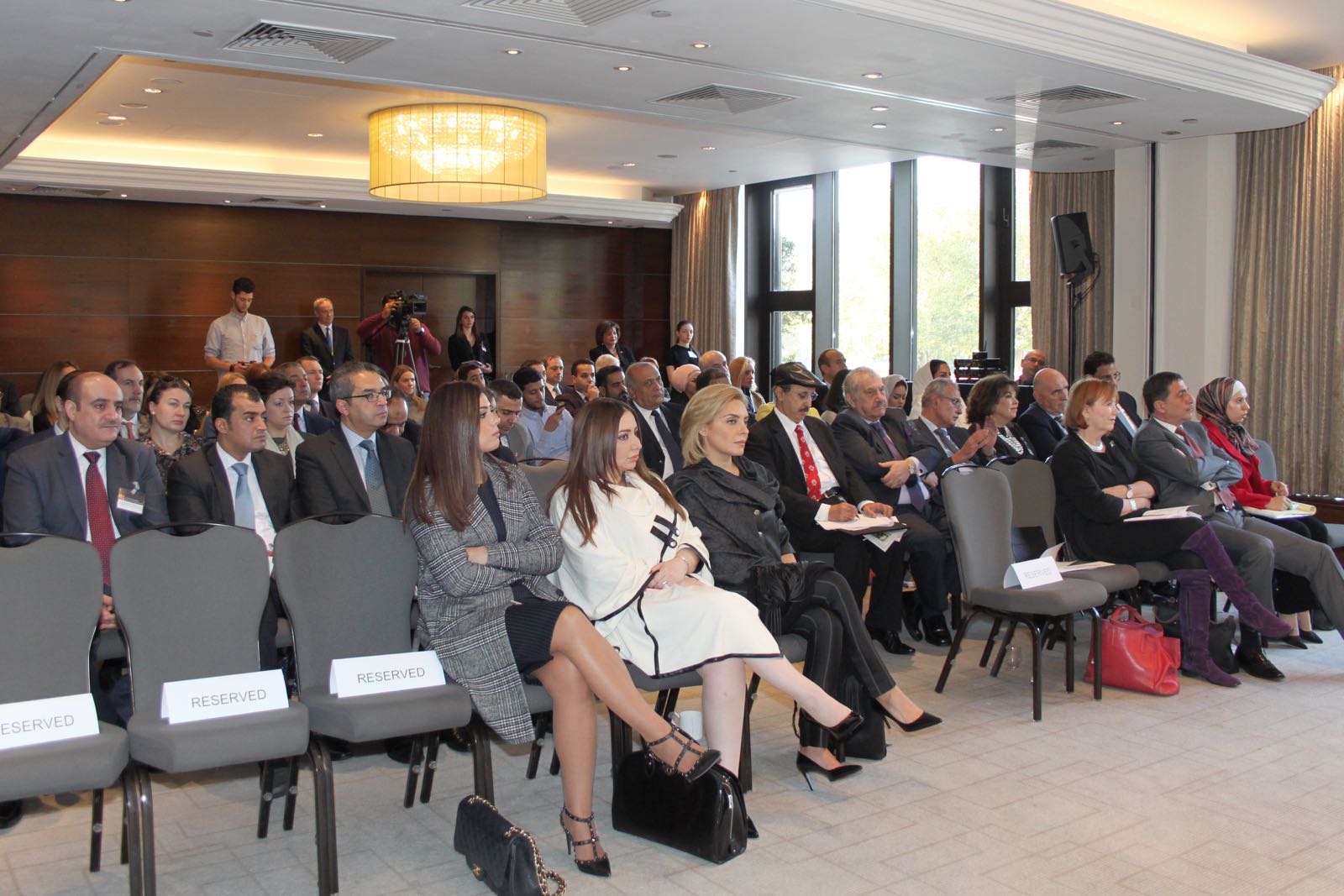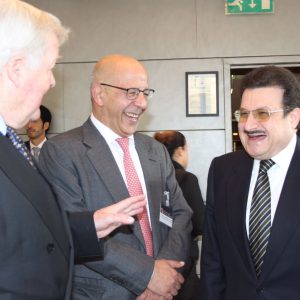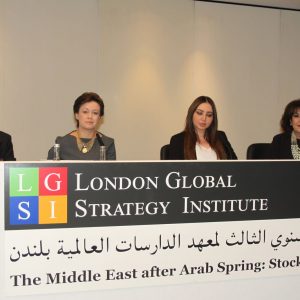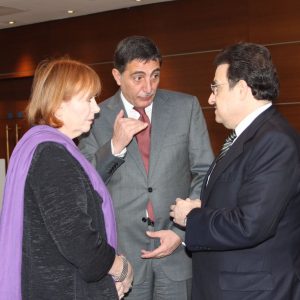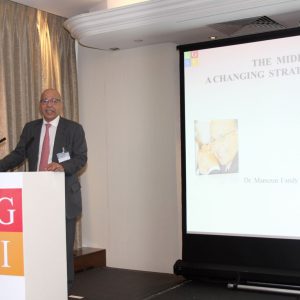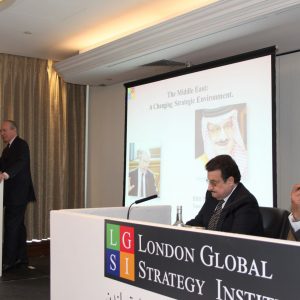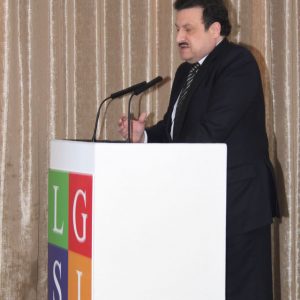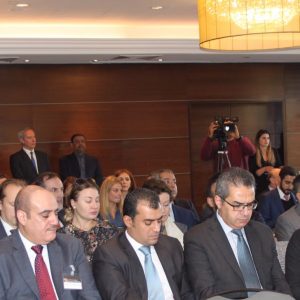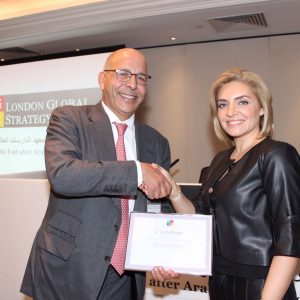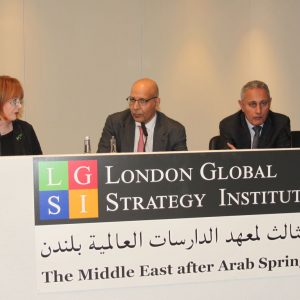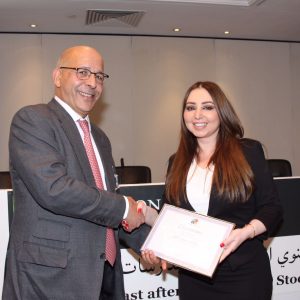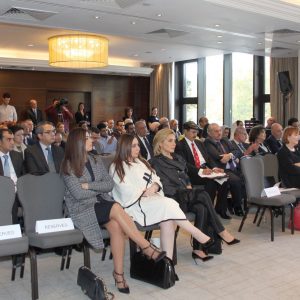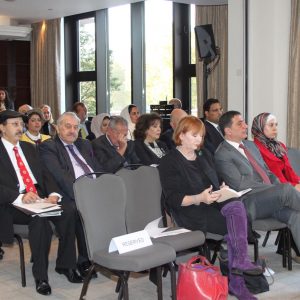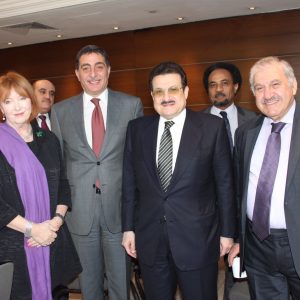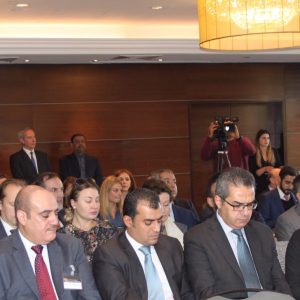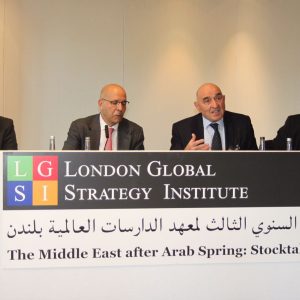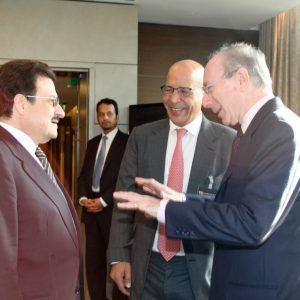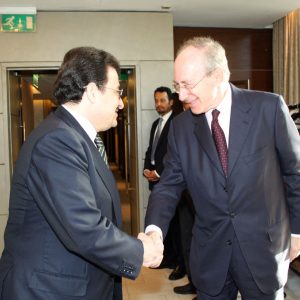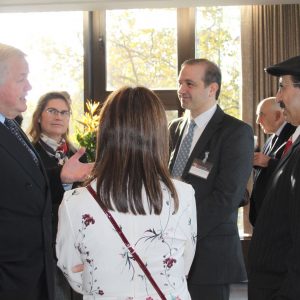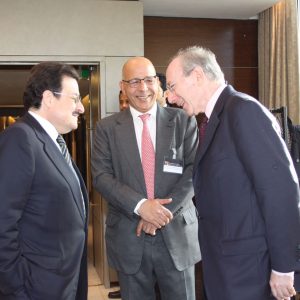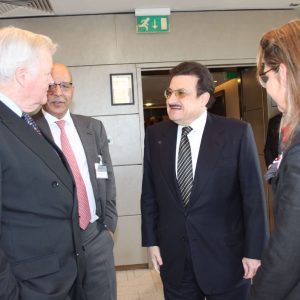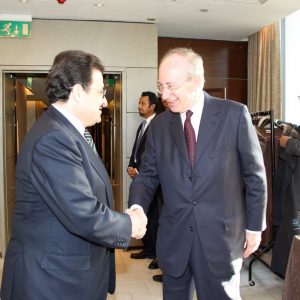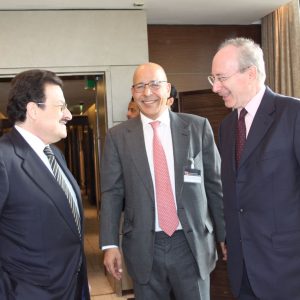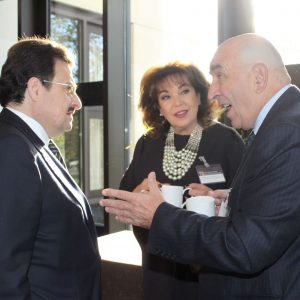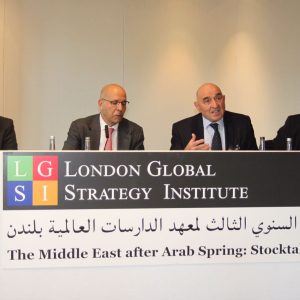Short summary of the panel discussions and debates
Panel 1 – The Middle East: A Changing Strategic Environment
HRH Prince Mohammend bin Nawaf Bin Abdulaziz al Saud highlighted how instability in the region poses a threat to the global security as a whole. One of the main dangers is the so called Islamic State. Saudi-Arabia has for long fought the influence and activities of this terrorist organisation and continues to lead the regional efforts for its extermination in both political and military terms. Elsewhere in the region, the departure of Assad would help ending the Syrian conflict but it is also crucial that Iran signals clearly whether it is a revolutionary or responsible regional power. Domestically, Saudi Arabia is on a path of ambitious economic reform and for this to succeed, stability and order in the region is in Saudi Arabia’s as well as everyone else’s collective interest.
Sir Malcom Rifkind emphasised the multiple challenges facing the region. While Daesh will eventually be defeated in military terms, parallel efforts are need to extinguish its ideological appeal. At the same time, Iran has increased its influence in the region fuelling sectarian divisions while progress in Palestine- question is stalling and many national economies are negatively affected by low energy prices. Moreover, some actors such as the Kurds have increased their weight in regional politics. Even if the Western interest in the region has fluctuated, all regional challenges have implications on both Western and global security and prosperity. As for the role of other outside powers, it is largely due to the Russian support to the Assad regime that keeps the Syrian conflict ongoing. The international community must show Russia that its actions will come with a heavy political price.
Panel 2 – Yemen and Syria: Revolutions or Proxy Wars?
For Sir William Patey, the Arab Spring was due to the failure of the affected regimes to provide their peoples with good governance. In terms of democratisation, it also showed how elections alone are not sufficient but also other institutions such as civil society and free press are required for functioning democracy. Both Yemen and Syria started as revolutions or uprisings but have since then become internationalised. In particular, the 2003 Iraq war as well as ‘red lines’ that were not enforced accelerated the developments and empowered other outside powers such as Iran and Russia. As for Saudi Arabia, the conflict in Yemen constitutes a legitimate national interest but this should be seen in political and not in sectarian terms.
Mr Bob Stewart reminded the audience of the UN- backed Saudi-led military efforts to end the conflict in Yemen and demanded a stronger political commitment from the international community. The humanitarian situation for ordinary Yemeni people continues to deteriorate and this requires renewed efforts beyond the military means. For this goal, there needs to be an inclusive UN-backed negotiation process aiming at halting the violence. In the medium-term, options such as UN peacekeeping force or a type of federal political arrangement must be given a serious thought as every option that stops people from dying must be considered.
Mr Ammar Waqqaf highlighted that the war in Syria is not simply a conflict between the regime and the Syrian people but a conflict between the different segments of the Syrian society. In this context, perceiving the different groups through a class or identity rather than religious affiliation can help better understanding the conflict as well as foreseeing its resolution. For many ordinary Syrians, the choice is between a dislikeable regime and a total anarchy. While initially a domestic struggle, the conflict has since attracted many outside powers turning it effectively into a proxy war.
Panel 3 – Egypt after two Revolutions: Is There a Way Out?
For Baroness Elizabeth Symons, a failure in Egypt would lead to a failure in the Middle East. Despite being a country of quickly growing young population and a control of one of the most important trade routes in the world – the Suez Canal – Egypt still faces short-comings in providing primary health care, quality education and jobs for its people. There is an inherent relationship between stability and prosperity and due to the easier access to information, economic and social inequalities are now more exposed than ever. The United Kingdom is committed to help Egypt in attracting more foreign private and public investment as well as helping in capacity building of its education and healthcare services.
While the revolutions in 2011 and 2013 clearly showed the people’s desire for change, HE Nasser Kamel reminded the audience that in many ways, Egypt has already delivered since those days. To move forward, rather than out, Egypt is committed to further improve the quality of governance and undergo an economic reform program capitalising from its already diverse and resilient economy. In political terms, the 2013 roadmap has been implemented and Egypt today has one of the most progressive constitutions in the world as well an elected parliament and president. While many observers saw the Western absence as a destabilising factor in the region, for Egypt it has allowed to carve its own national path.
Panel 4 – Media, Revolutions & Wars: What went Wrong?
In the final panel, Mr Adel Darwish advocated for more independent media in the Middle East. While in many cases the problem is the lack of resources, a good product will always have a market. Both in the West and in the Middle East, reporting is not necessarily affected by a bias or intentional framing of issues, but more by groupthink and habitual ways of doing things. Moreover, self-censorship is a major problem in the region. Much of what it is to be a journalist must be learnt by doing but even when the tools change an intelligent mind is what matters the most.
For Ms Baria Alamundeen, the media has become more polarized in the aftermath of the Arab Spring. For example, in Lebanon, there are now many more newspapers and TV channels that clearly promote a certain position which affects negatively the overall quality of journalism. At the same time, the journalists are generally not well paid and often receive insufficient training in the region. On the other hand, user-generated content and citizenship media has shaped the media landscape creating new opportunities for all journalists.
Ms Rasha Quandeel emphasised that the Arab Spring has not yet come to an end; the political and social processes from 2011 are still in many ways ongoing. For a committed journalist, there is nothing above questioning and challenging; this is what differentiates journalism from propaganda and public relations. In this profession, trust and credibility are crucial and they can be lost in an instance. At the same time, journalists themselves need to be open about their mistakes to preserve the trust when, evidently, mistakes are made.
Concluding Remarks
For Mr Marco Vicenzino, a major problem for both journalists and policy-makers in both the Middle East and elsewhere is the lack of historical perspective. The 2011 events changed drastically the traditional top-down politics in the region it is still too early to say conclusively how or where this will lead; even more so due to the interests and activities of multiple outside powers in the region. What happened in 2011 was however long due, the question was not if but when and from where the spark would come. While much has changed since then, in many places there is still a lot to do before the people’s desires for representation, accountability and transparency are fully realized.


